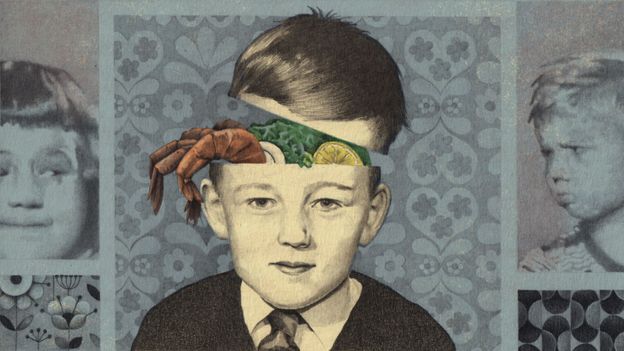The Lifelong Impact of Parental Favoritism on Siblings
Core Concepts
Parental favoritism can have long-lasting impacts on mental health and family relationships, affecting children's well-being across their lifespan. The author explores the hidden dynamics of favoritism within families and its profound consequences.
Abstract
Parental favoritism is a common yet harmful phenomenon that affects around 65% of families, leading to emotional problems and strained sibling relationships. Research suggests that perceived parental favoritism can result in low self-esteem, anxiety, depression, and behavioral issues in children. The impact extends into adulthood, influencing adult children's mental health and relationship dynamics within the family.
Customize Summary
Rewrite with AI
Generate Citations
Translate Source
To Another Language
Generate MindMap
from source content
Visit Source
www.bbc.com
How parents unknowingly harm siblings
Stats
Parental favoritism occurs in around 65% of families.
Emotional closeness with parents is a strong predictor for favoritism.
Maternal favoritism is associated with higher depression scores in adult children.
Quotes
"Preferential treatment may begin for parents due to one child being easier to parent, they may relate to that child more, see similarities between them and the child." - Laurie Kramer
"Being a mother's favorite child creates conflict in their favored children's relationships with their siblings." - Megan Gilligan
Key Insights Distilled From
by at www.bbc.com 08-09-2023
https://www.bbc.com/future/article/20230809-the-lifelong-effects-of-the-favourite-child?utm_source=linnk.ai
Deeper Inquiries
How does parental favoritism impact sibling relationships in adulthood?
Parental favoritism can have a significant impact on sibling relationships in adulthood. When parents show differential treatment towards their children, it can lead to feelings of resentment, inadequacy, and tension among siblings. The favored child may experience emotional distress due to conflicts with their siblings, which can result in poor sibling relationships and lower psychological well-being. Additionally, the less-favored child may feel marginalized or neglected by the parent who shows preference towards another sibling. This dynamic can create long-lasting rifts between siblings that persist into adulthood.
What strategies can parents employ to mitigate the effects of favoritism on their children?
To mitigate the negative effects of favoritism on their children, parents should first become more self-aware of their behaviors and biases. It is essential for parents to recognize when they are showing preferential treatment towards one child over others and understand the potential consequences of such actions. Open communication within the family is crucial; parents should engage in sensitive conversations with their children about how they perceive parental behavior and address any hurt or misunderstandings that arise.
Parents can also strive to treat each child as an individual, taking into account their unique needs, interests, personalities, and ages. While it's impossible to treat all children exactly the same in every situation, fairness should be maintained by considering each child's perspective and avoiding consistently causing unfair situations through differential treatment.
By fostering understanding and empathy within the family unit and being mindful of how favoritism impacts sibling dynamics, parents can work towards creating a more harmonious environment where all children feel valued and supported equally.
How does birth order influence parental favoritism within families?
Contrary to common assumptions about birth order playing a significant role in parental favoritism, research suggests that its influence may not be as pronounced as expected. Studies have shown that factors like emotional closeness between parent-child dyads are stronger predictors of perceived favoritism than birth order itself.
While some initial biases based on birth order might exist during childhood (e.g., first-born being seen as "golden child"), these perceptions tend to evolve over time based on other factors such as similarity between parent-child pairs rather than strict adherence to birth hierarchy.
In adulthood specifically, last-born children have been found to be more likely chosen for emotional closeness by parents compared to middle or first-borns. Therefore, while birth order might play a role in shaping early perceptions of parental favoritism within families, its impact diminishes over time as other aspects like personal connections come into play more prominently.
0
